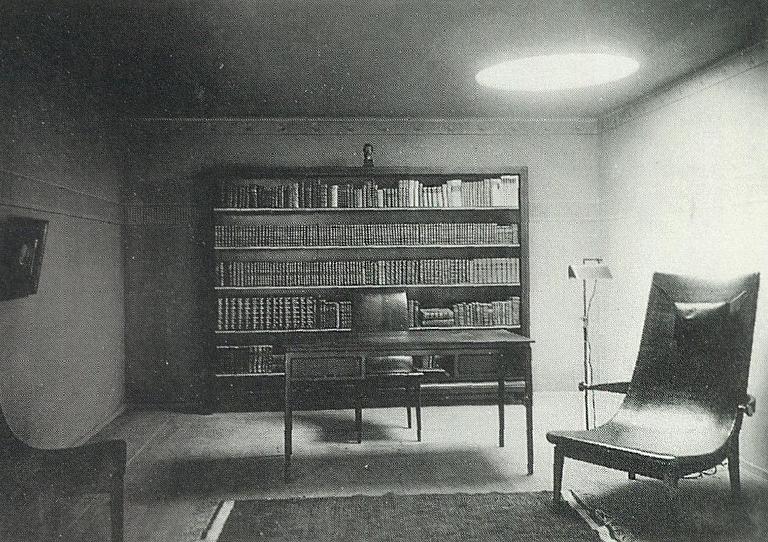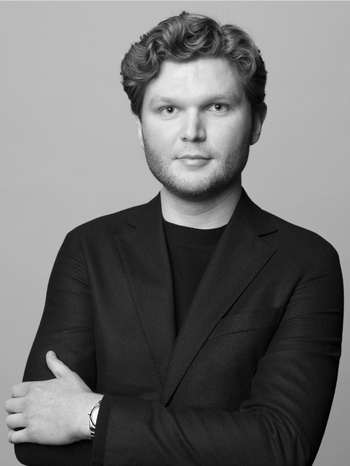Gunnar Asplund
a rare "Senna" chair, Cassina, Italy, ca 1983.
Walnut, decorated leather upholstery, cast decoration, marked Cassina and numbered 0031. Length ca 120 cm, width 91 cm, height 113 cm, seat height ca. 31-34 cm.
Wear, upholstery with scratches, the cast decoration on one armrest is missing.
Provenance
Architect Hans Asplund (1921-1994), as a gift from Cassina.
Thence by descent to his son, diplomat and UN ambassador Bo Asplund (1950-2024).
Thence by descent to the present owner.
Literature
Filippo Alison (ed.), "Erik Gunnar Asplund - Mobili e oggetti", Electa 1985, compare pp. 59-60.
Dan Gordan, "Svenska stolar och deras formgivare 1899‑2013", Norstedts 2014, p. 54.
More information
Designed for the Swedish pavilion at the Paris Exhibition in 1925. Cassina made a very limited edition in 1983. The present chair is according to family tradition the very first produced in this edition, and sent as a gift from Cassina to Hans Asplund, son of Gunnar Asplund. When Cassina premiered the new edition in Copenhagen, Hans was present. The chair then had a prominent place in Hans and his wife Anne Asplund's home at Grönegatan 32 in Lund, and when Hans passed away in 1994 it passed on to Bo Asplund.
The name derives from Asplund's title of his own proposal for the exhibition pavilion, "Vers la Seine" (Toward the Seine). The original from 1925 is now located within the permanent collection of the Nordic Museum in Stockholm (Inventory number 280237).
Designer
Gunnar Asplund is considered one of the most significant and leading architects during the interwar period, both in Sweden and internationally. Asplund is seen as one of the foremost representatives of 1920s Nordic classicism, with the Skandia Theatre (1922) and the Stockholm Public Library (1928) as prominent examples. He was also one of the pioneers of functionalism, which he introduced in Sweden with the Stockholm Exhibition in 1930, where he was the chief architect.
Read more







































































































